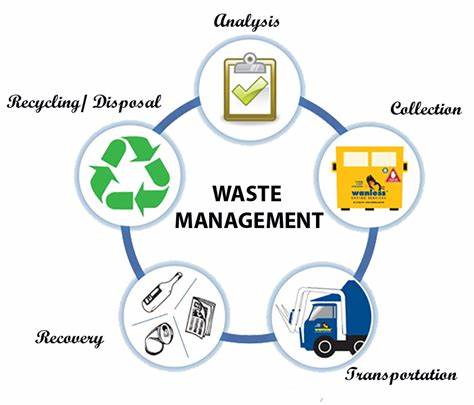
The Importance of Data and Analytics in Waste Management
Introduction
Waste management is crucial for maintaining a sustainable environment. It involves various processes such as collection, transportation, disposal, and recycling of waste materials. Effective waste management practices are essential for minimizing environmental pollution and conserving resources. In recent years, the integration of data and analytics has emerged as a game-changer in waste management. This article explores the historical background, key concepts, main discussion points, case studies, current trends, challenges, and future outlook of data and analytics in waste management.
Historical Background
Waste management practices have evolved over time. In the past, waste was often dumped indiscriminately, leading to severe environmental degradation. The focus was primarily on waste disposal, with less emphasis on waste reduction and recycling. Traditional waste management did not make use of data and analytics due to limited understanding of their potential benefits.
Key Concepts and Definitions
To understand the significance of data and analytics in waste management, it is important to define the key concepts involved. Waste management includes waste collection, transportation, processing, and disposal. Data in waste management refers to the collection and analysis of information related to waste generation, composition, and disposal. Analytics, in the context of waste management, involves using statistical models and algorithms to gain insights from the collected data.
Main Discussion Points
The Role of Data in Waste Management
Data collection plays a crucial role in identifying waste sources and patterns. By analyzing the data, waste management professionals can identify areas with high waste generation rates and target them for intervention. Additionally, data is essential for monitoring waste generation and disposal, enabling policymakers to assess the effectiveness of waste management strategies. Furthermore, data can inform waste reduction strategies by highlighting trends and patterns that can be used to develop targeted initiatives.
The Significance of Analytics in Waste Management
Analytics plays a vital role in optimizing waste management processes. By utilizing predictive analytics, waste management professionals can forecast future waste generation and plan accordingly. This proactive approach helps in the efficient allocation of resources and waste diversion. Furthermore, analytics can improve resource allocation by identifying areas where waste management efforts need to be intensified or redirected. The benefits of analytics in waste management extend beyond operational efficiencies, as it can also contribute to improved environmental outcomes.
Case Studies or Examples
Several organizations have successfully implemented data and analytics in waste management. For instance, Waste Management Inc. leverages data and analytics to optimize collection routes, resulting in reduced fuel consumption and emissions. Another example is Recyclebank, a company that rewards individuals for recycling. They use data and analytics to track recycling behavior and provide personalized incentives, leading to increased recycling rates.
Current Trends or Developments
Recent technological advances have revolutionized data collection and analysis in waste management. Advanced sensors and Internet of Things (IoT) devices enable real-time monitoring of waste containers, improving efficiency in waste collection. Additionally, machine learning algorithms and artificial intelligence are being used to analyze vast amounts of waste data, uncovering valuable insights and trends.
Challenges or Controversies
Despite the numerous benefits of data and analytics in waste management, several challenges exist. Data collection can be complex and resource-intensive, requiring substantial investments in infrastructure and technology. Ensuring data quality and consistency across different waste management systems is another challenge. Controversies also surround the use of analytics, such as concerns over privacy and data security.
Future Outlook
The future of data and analytics in waste management looks promising. Advancements in technology, such as the integration of blockchain and IoT, are expected to enhance data collection and analysis capabilities. These technologies will enable increased transparency, traceability, and accountability in waste management practices. Additionally, emerging technologies like robotics and automation hold the potential to revolutionize waste sorting and processing, leading to improved recycling rates.
Conclusion
Data and analytics are essential for effective waste management. They enable waste management professionals to make informed decisions, optimize processes, and drive sustainable outcomes. By leveraging data and analytics, organizations can achieve significant environmental and economic benefits. However, challenges related to data collection, quality, and privacy need to be addressed. As technology continues to advance, the future of data and analytics in waste management looks promising, with potential advancements that can revolutionize waste management practices.